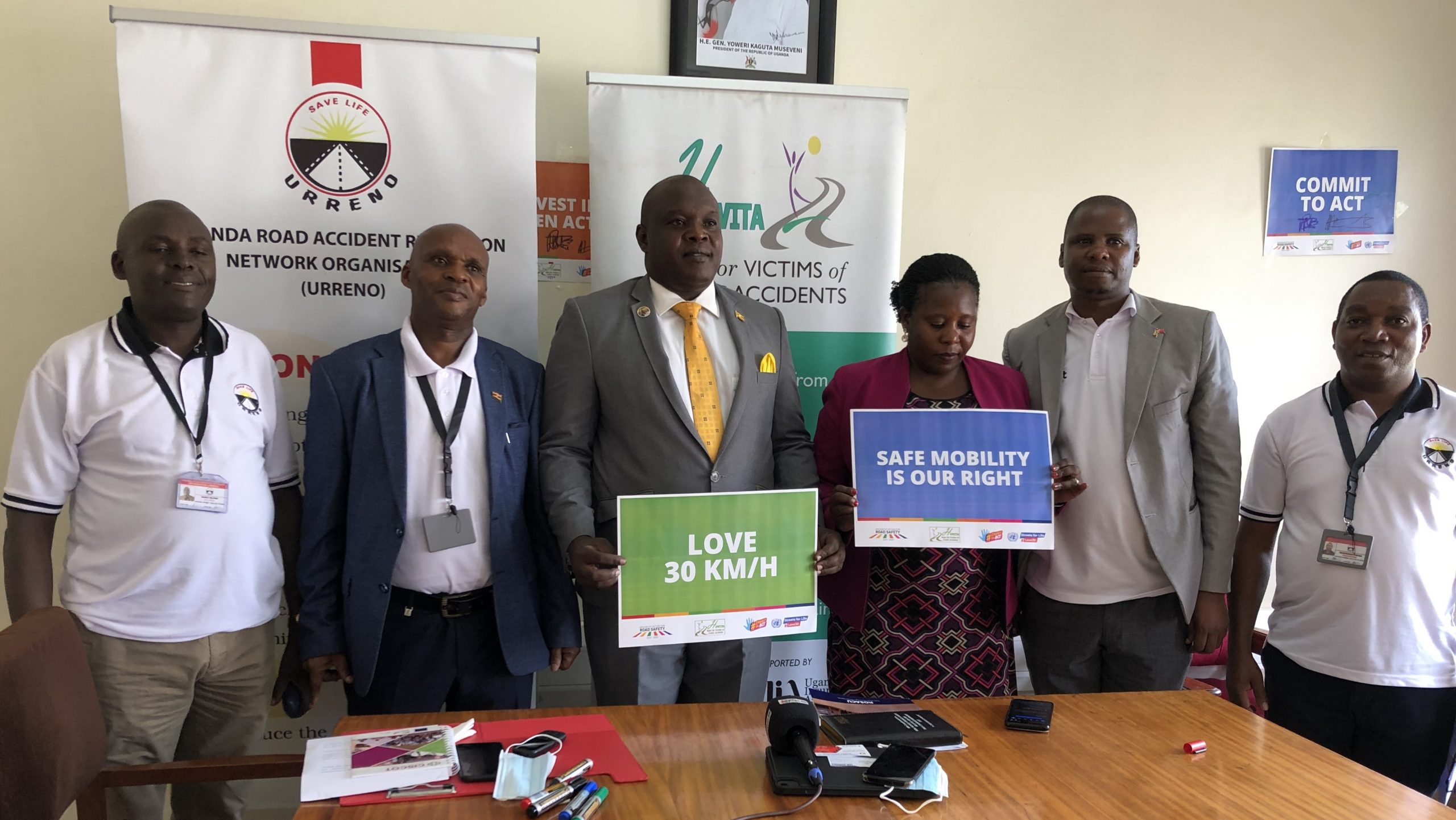
According to the Uganda Police Force Annual Crimes and Traffic Report, 628 school-aged pedestrians below the age of 18 died in road crashes in 2020. There has been an increase in the pedestrian death rate for young people aged 12–19 years old since 2013.
In 2021, the Uganda Road Accident Reduction Network Organization (URRENO) and Hope for Victims of Traffic Accidents (HOVITA) formed a coalition to join the Alliance Incubator program, aiming to reduce road crash deaths and injuries among Ugandan school children by 2030. The Incubator mobilizes and strengthens NGOs’ advocacy to drive implementation of interventions that have been proven to be effective in reducing road-related deaths and injuries.
“Prior to the Incubator, we thought that sensitizing and training school children was enough, but this has not yielded much result. But with the Incubator, we have learnt that we can further empower school children to demand for their rights,” says Sam Bambanza, Executive Director, HOVITA.
Since their involvement in the Incubator, the coalition has not only garnered public support and government attention. The government has agreed to appoint a consultant to review speed limits in urban areas across Uganda with a view to bring forward legislation to reduce urban speed limits from 50 km/h to 30 km/h. The key to their success lay in effective stakeholder mapping and engagement, leveraging relationships with vital entities like the Ministry of Works and Transport, Parliamentary Forum on Road Safety, the World Health Organization (WHO), the Global Road Safety Partnership (GRSP), and Kampala Capital City Authority (KCCA).
A notable stride since their participation in the Incubator is the development of a project for improving the safety of school zones and reducing road traffic fatalities amongst children pedestrians. This project is funded by GRSP. Furthermore, the knowledge acquired in the Incubator has improved their capacity in analyzing and simplifying complex data, making it more accessible to policymakers and improving their effectiveness in communicating the urgency of their cause to decision makers. Their efforts have also been recognized by the Ministry of Public Service in Uganda and are collaborating with both NGOs to develop policy guidelines and regulations for safe school zones in Uganda.
Their efforts have significantly boosted media attention towards road safety concerns in Uganda, thereby enhancing public awareness about the necessity of safer roads for school children. Through their collaboration with GRSP, they connected with the Africa Center for Media Excellence which provided training on road safety reporting to journalists in Uganda. The organizations capitalized on this to showcase their Incubator-related initiatives, guiding journalists through school visits to demonstrate the risks being addressed, including the establishment of safe school zones and the enforcement of 30 km/h speed limits. Furthermore, the well-established reputation of both organizations within Uganda ensures media presence at their events, and they frequently receive invitations to discuss road safety on various talk shows, further allowing them to highlight their Incubator projects and activities.
The coalition’s achievements, including the review of urban speed limits and the increased media coverage of road safety issues, demonstrate the power of collective action and strategic partnerships. Their involvement in the Alliance Incubator has not only improved their advocacy skills but also empowered them to create tangible, life-saving changes in road safety, particularly for school children in Uganda.
“Through the Incubator, we have built stronger partnerships and continuous engagement with key stakeholders such as the Kampala Capital City Authority, Ministry of Works and Transport, and Uganda Police, which are leading to tangible impacts of our advocacy efforts towards implementing 30km/h zones,” says Tumwine Fred, Executive Director, URRENO, Uganda.